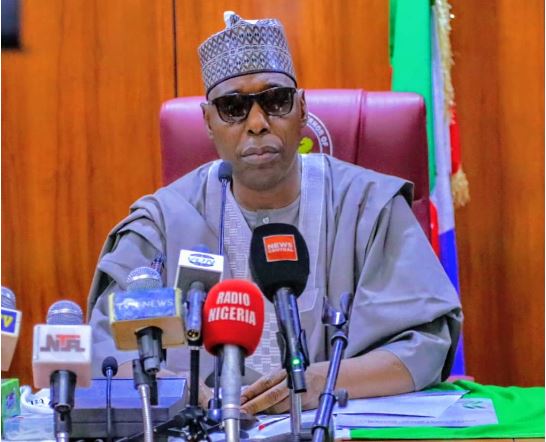Paragraph 1: Borno State’s Renewed Counter-Insurgency Strategies
Borno State, a region deeply affected by insurgency, is undergoing a strategic shift in its counter-insurgency operations. Governor Babagana Zulum, in a recent address, unveiled a collaborative effort with the Federal Government to revise existing strategies. This partnership aims to bolster the state’s security architecture, enhance intelligence gathering, and provide frontline security personnel with the necessary tools to effectively combat the persistent threat. The governor emphasized the crucial role of collaboration with federal partners and security agencies in developing these comprehensive strategies. This renewed focus underscores the urgency of addressing the security challenges and signifies a commitment to a more effective and coordinated response.
Paragraph 2: Strengthening Security and Community Engagement
Governor Zulum’s address highlighted the multi-pronged approach being adopted to tackle the insurgency. Beyond strengthening formal security structures, the strategy emphasizes the importance of reinforcing volunteer forces such as the Civilian Joint Task Force, local vigilantes, and hunters. These groups, deeply rooted in the communities, play a vital role in local intelligence gathering and early warning systems. The governor also stressed the importance of community-based intelligence networks, recognizing that local participation is essential for effective security measures. He explicitly cautioned against any form of collusion with armed groups, emphasizing that they are a common enemy. This approach recognizes the need for a comprehensive security framework that integrates both state-led and community-based efforts.
Paragraph 3: Addressing Humanitarian Challenges and Fostering Social Order
Governor Zulum’s address also acknowledged the pressing humanitarian challenges facing the state. He addressed the water scarcity affecting Maiduguri and surrounding areas, attributing it to the destruction of vital infrastructure caused by the devastating floods of the previous year. He appealed for patience as the government works to restore the water supply system. Furthermore, in response to rising criminal activities in Maiduguri, the governor announced the reconstitution of the Anti-Social Vices Committee. This committee is tasked with curbing violent crimes and social disorder, reflecting the government’s commitment to maintaining order and stability amidst the security challenges. These initiatives highlight the government’s efforts to address the broader consequences of the insurgency and build a more resilient society.
Paragraph 4: Seeking Divine Intervention and National Unity
In a demonstration of the multifaceted approach to resolving the crisis, Governor Zulum called for a voluntary fast across the state, appealing for divine intervention for peace and stability. This spiritual dimension highlights the deeply felt impact of the conflict and the desire for a peaceful resolution. The governor’s call for unity, perseverance, and faith underscored the importance of collective action and resilience in overcoming the challenges. He also extended condolences to the families of fallen military personnel, recognizing their sacrifice in the fight against insurgency. This act of solidarity acknowledges the human cost of the conflict and emphasizes the shared commitment to peace.
Paragraph 5: Advocating for Increased Defence Spending at the National Level
Meanwhile, at the national level, discussions regarding resource allocation for defence are taking center stage. Babajimi Benson, Chairman of the House Committee on Defence, has called for a significant increase in defence spending, advocating for at least 5% of Nigeria’s GDP to be allocated to the sector. He argued that this increase is crucial to effectively combat the rising tide of killings and abductions plaguing the country. Benson commended the efforts of the armed forces but stressed the need for increased investment to equip them adequately to address the complex security challenges Nigeria faces, including insurgency, terrorism, and banditry. He pointed to other nations that allocate a significant portion of their GDP to defence as examples of the necessity of well-targeted spending in this sector. This call for increased investment recognizes that adequate resources are essential for effective security operations.
Paragraph 6: Addressing Defence Funding Challenges and Future Reforms
Benson further highlighted the challenges within the current defence budget, noting that a large portion is allocated to personnel welfare, leaving insufficient funds for capital expenditure, equipment procurement, and operational logistics. He attributed the worsening security situation, in part, to external factors such as the withdrawal of French forces from the Sahel region. This withdrawal, he argues, has emboldened jihadist groups, enabling them to exploit Nigeria’s porous borders. However, he expressed optimism about forthcoming reforms, revealing plans for a new, sustainable defence funding model to be unveiled by the Federal Government. He commended the commitment of President Tinubu and Speaker Tajudeen Abbas to national security and affirmed the 10th House of Representatives’ prioritization of security through legislation, oversight, and strategic reforms. These planned reforms represent an acknowledgement of the need for a more sustainable and effective approach to defence funding in order to address the complex security landscape.














